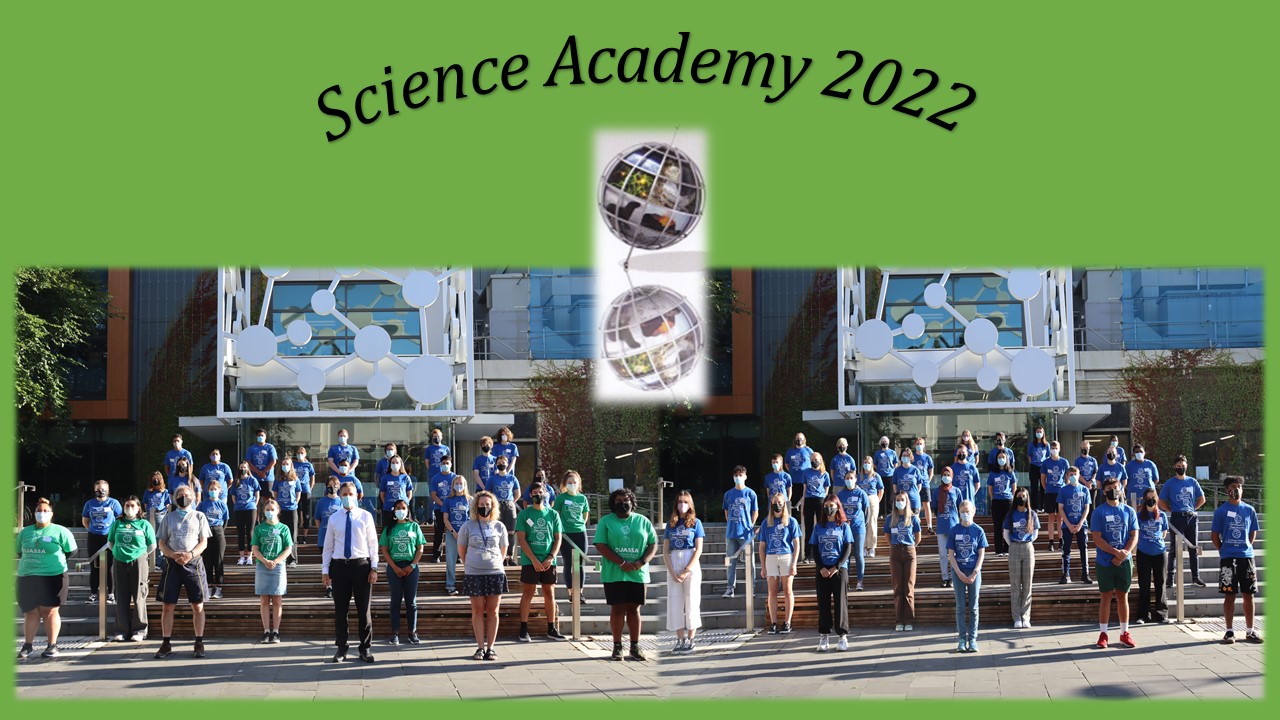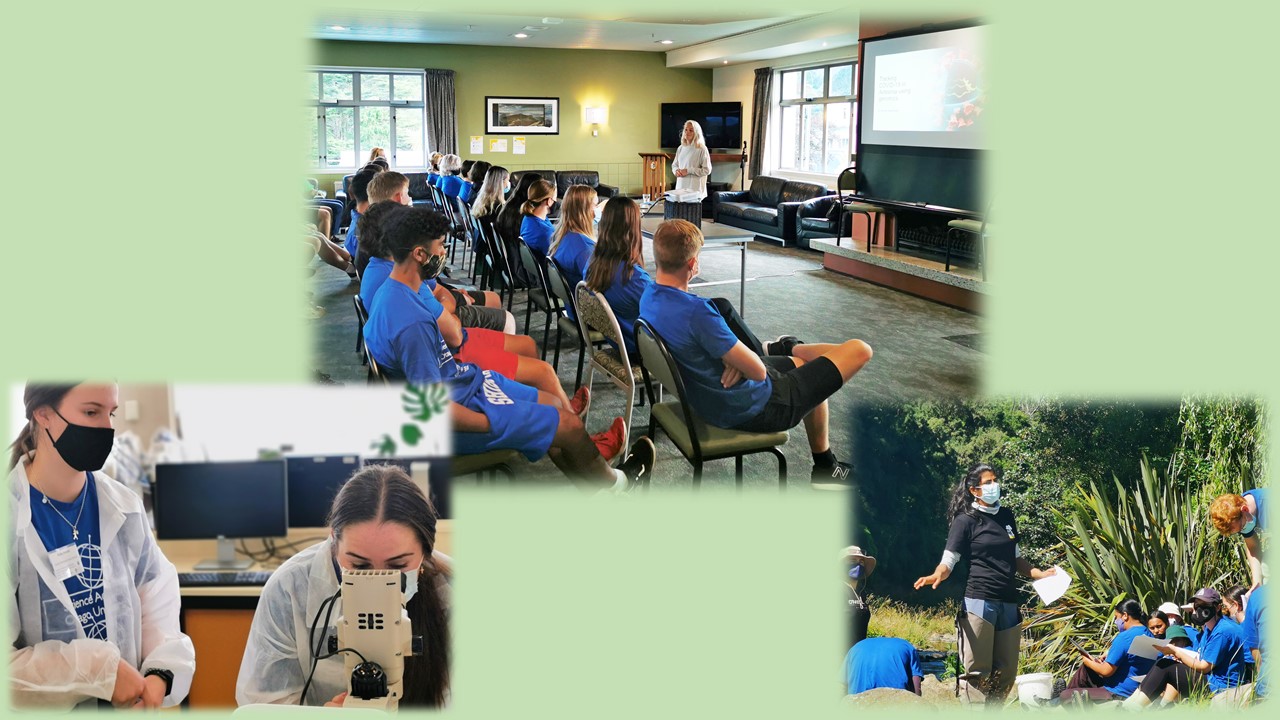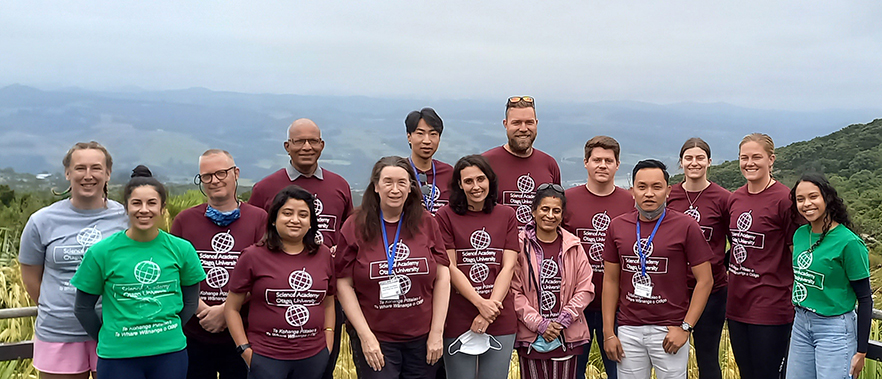
Science Academy 2022 students, Greenshirt camp helpers and Science Academy staff during the January camp at Otago University, Dunedin.
Our 2022 student cohort comprises 55 potentially high-achieving Year 13 Science students from all over rural/provincial, small and/or lower decile across New Zealand.
The students will attend two science camps (January and July), at the University's Dunedin campus. Between January and July camps, they work in teams on a science communication project which involves preparing a short film, podcast, public talk, or museum display talk that will be showcased to a public audience at the end of the July camp. Following the July camp our students are supported in their run-up to NCEA/Scholarship External exams in November with 10 weekly on-line tutorials on Biology, Chemistry and Physics with a focus on how to achieve excellence.
January 2022 Summer Camp
“I have never had so many students email me ahead of camp to say how much they were looking forward to coming down to Otago Uni.”
Steve Broni (Science Academy Director)
Our 2022 Summer camp ran from 22 to 28 January. Despite the country moving to Traffic Light RED restrictions just prior to camp our extensive pre-camp, planning with Arana Residential College and the University's Health and Safety Team meant that the camp could go ahead while meeting social distancing, mask wearing, and catering requirements. (All our students are double vaccinated.)
After an evening of icebreaker team building activities led by our team of senior university 'Greenshirt' mentors, there followed the usual packed programme of morning seminars, two-day projects, short electives, science communication workshops and free-time options (see Timetable below).
The morning seminars addressed topics such as:
- Climate Change
- What is `science'?
- Using genomics to track COVID-19
- Teenage Psychology
Two-day projects are divided into two streams with students choosing one option from each stream.
Project Stream A
- Applied Mathematics and Statistics
- Chemistry
- Anatomy and Physiology
- Marine Science
Project Stream B
- Genetics
- Physics
- Sport and Exercise Science
- Zoology
- Computer Studies
See our Projects page for details
In addition, our students choose a short 3-hour elective on a topic not normally covered as part of the school curriculum.
This year for the January camp we offered:
- Archaeology,
- Botany,
- Pharmacology,
- Psychology,
- Quantum Physics,
Students get a 3-hour break from 3–6pm during which they can sign up for fun activities around Dunedin or just chill out at the accommodation.

An introduction to some basic science communication skills is a key component of the Science Academy and these are covered during evening interactive workshops from 7:00–8:30pm. Students choose from one of four science communication streams:
- Interpretive Science Talks
- Science Radio Podcasting
- Introduction to Science Filmmaking
- Museum Science Communication
Between January and July camps, students work in teams or individually on a project that will be presented to a public audience at the end of the July camp as part of the NZ International Science Festival.
The students were delighted that the ever-popular field trip on the MV Monarch around Taiaroa Head was able to go ahead on Wednesday afternoon and this provided a welcome break mid-week.
Sadly, rain forced us to cancel the usual outdoor barbeque and sports evening afterwards with indoor activities and games keeping everyone laughing till lights-out.
The students left invigorated and enthused about tackling Year 13 Science and super keen to return in July.
“This was the best experience of my life, I really enjoyed it…”“… and the way the red light system was handled was great!”
Find out more about the Summer camp schedule:
Student timetable 2022 (PDF)
Professional Learning and Development programme

In January 2022, a group of 13 teachers from all over New Zealand attended our PLD programme. From forensic science and physics in sport to learning how to support our Māori and Pasifika learners in Science, it was an action packed programme of hands-on activities. A field trip to Orokonui to learn about native animals and plants was a particular highlight. Working at the red alert level was a challenge but we managed to make it though. As one participant from Auckland put it:
“Each and every activity was well organized. You made all this happen while the whole country is in full red alert without any hiccup.
Many events have been cancelled in Auckland, gone digital and minimized to skeleton level…”
Find out more about the workshops the teachers attended: